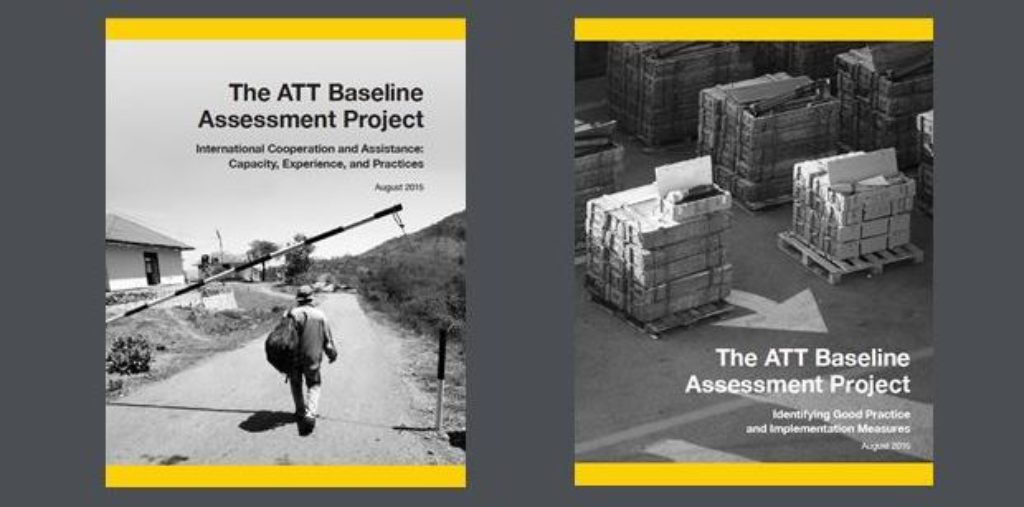Governments, industry, and civil society from around the world are meeting in Cancún, Mexico for the first Conference of States Parties of the Arms Trade Treaty (ATT). As the first legally-binding instrument to regulate the global trade in conventional weapons, the ATT establishes normative criteria for all States Parties to apply when making international arms export decisions. In Mexico, states will make important decisions to lay the foundations for effective treaty implementation. Stimson Senior Associate Rachel Stohl – who served as the consultant to the UN ATT Process – and Non-Resident Fellow Paul Holtom developed the Arms Trade Treaty-Baseline Assessment Project (ATT-BAP) to help states understand the obligations of the ATT and prepare them for its implementation.
ATT-BAP is launching two new analytical reports in Cancún this week on good practice and facilitating cooperation and assistance for effective ATT implementation. The reports, “Identifying Good Practice and Implementation Measures” and “International Cooperation and Assistance: Capacity, Experience, and Practices,” utilize data provided by states in completed Baseline Assessment Surveys and are intended to help states as they develop effective arms transfer control systems to implement the ATT. “Identifying Good Practice and Implementation Measures” features examples of good and common practices for treaty implementation. “International Cooperation and Assistance: Capacity, Experience, and Practices” highlights examples of existing cooperation practices and assistance needs, as well as areas in which states are willing to offer assistance to help other states fulfill their ATT obligations.

